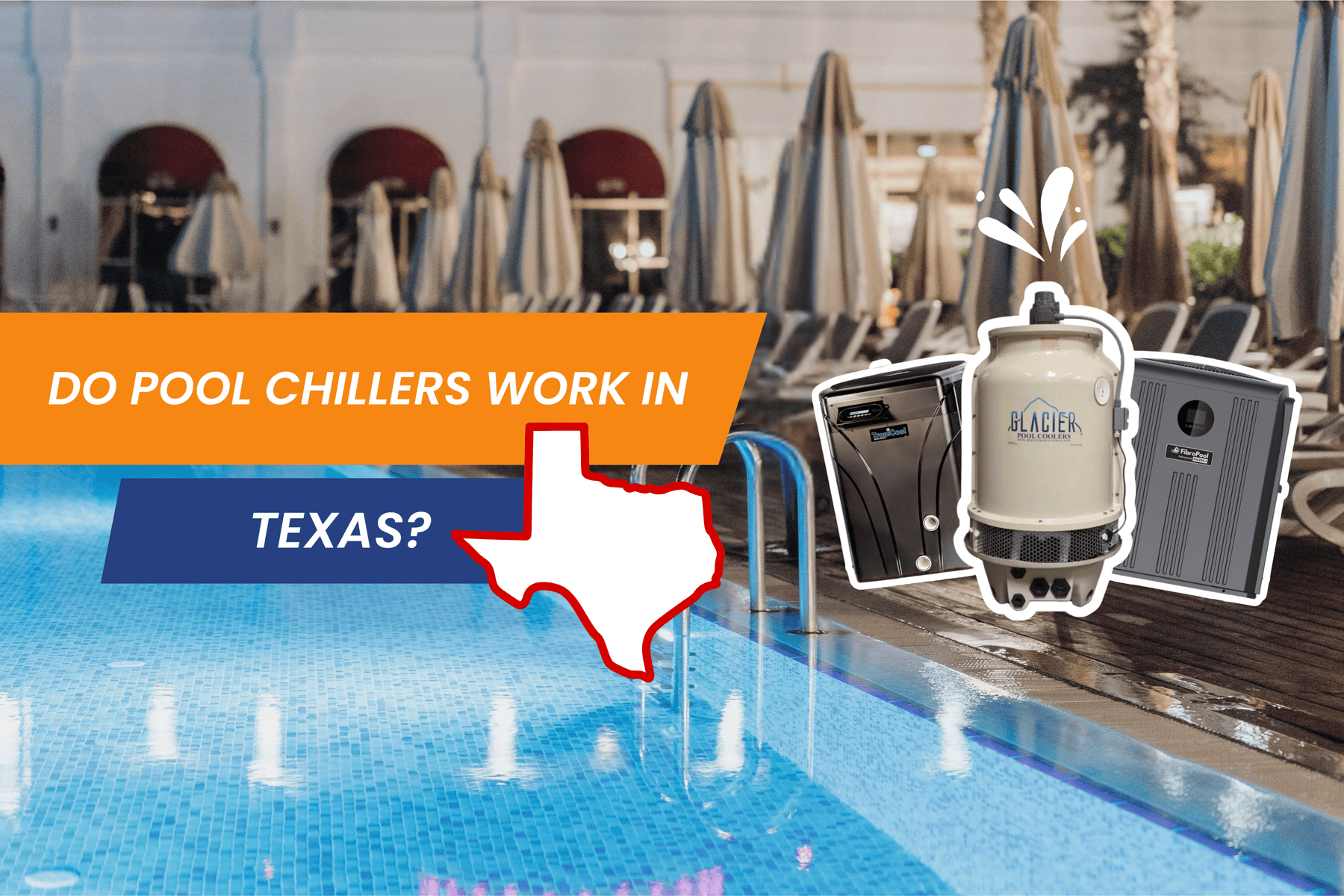
Do Pool Chillers Work in Texas?
Pool Chillers: Your Essential Guide to Beating the Heat
Think Texas summers are hot enough to fry an egg on the sidewalk? Try swimming in bathwater, in muggy, still air!
Pool chillers do work in Texas - and they’re your pool’s secret weapon against that relentless heat.
Understanding Pool Chillers: How They Combat the Texas Heat
A pool chiller is exactly what it sounds like - a machine that cools your pool water when the sun turns it into soup.
There are two common types: evaporative coolers and refrigerant-based systems. Evaporative ones pull in air to help water lose heat, while refrigerant models use compressors and coils to bring the temperature down fast.
They usually connect to your pool’s existing pump and filter system. Even on hot, muggy Texas afternoons, a properly-sized chiller can drop your pool’s temperature by 5 to 10 degrees.
That might not sound like much, but when the water feels like bathwater, those few degrees make a huge difference.
Why a Pool Chiller is a Must-Have for Texas Summers
When your pool feels like warm tea, it's just not the same. Hot water can mess with chlorine levels, which means more maintenance and a higher risk of algae.
And let's be real - nobody wants to swim when it's hotter in the water than out of it. Chillers keep the water in the perfect range so you can actually enjoy jumping in.
They’re especially useful if you’ve got kids, pets, or anyone sensitive to heat. Cooling things off helps prevent overheating and keeps the fun going longer.
Pool Chiller Options and Installation Considerations
Not all chillers work the same, so it’s important to pick one that matches your needs.
If you want the precise control of setting a cooling temperature, consider a refrigerant-based system.
If you want an energy efficient option, choose an evaporative pool chiller.
Both options are excellent and will work if sized properly! Make sure your pool system can handle the extra power draw and has space for the unit.
Are Pool Chillers Worth the Investment in Texas?
If you’re serious about using your pool all summer, then yes - absolutely.
Costs vary, but most pool chillers fall between $2,000 and $5,000 with installation. That might sound steep, but the payoff is daily comfort and fewer headaches from overheating or water balance issues.
Think of it like air conditioning for your pool. You wouldn’t want to live without A/C in Texas, right?
With regular care and the right model, your pool will stay cool even when it feels like triple digits outside.
Related reading:



Leave a comment